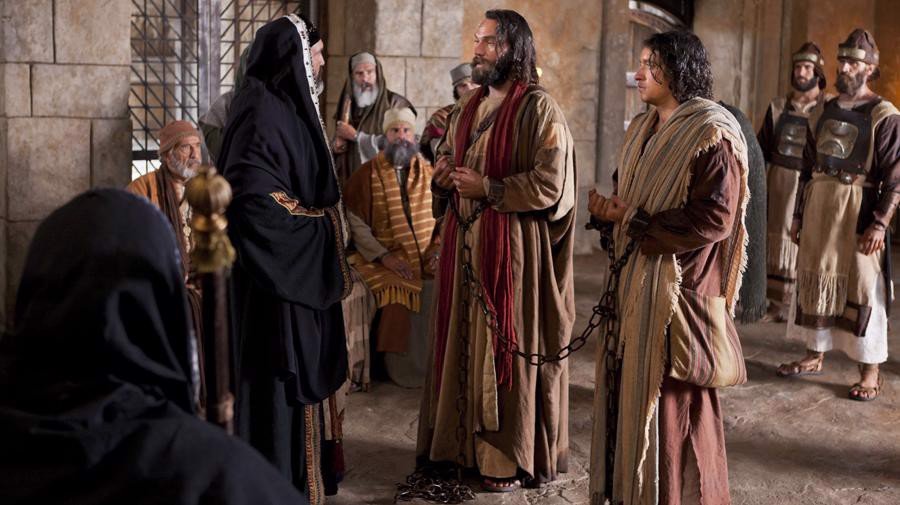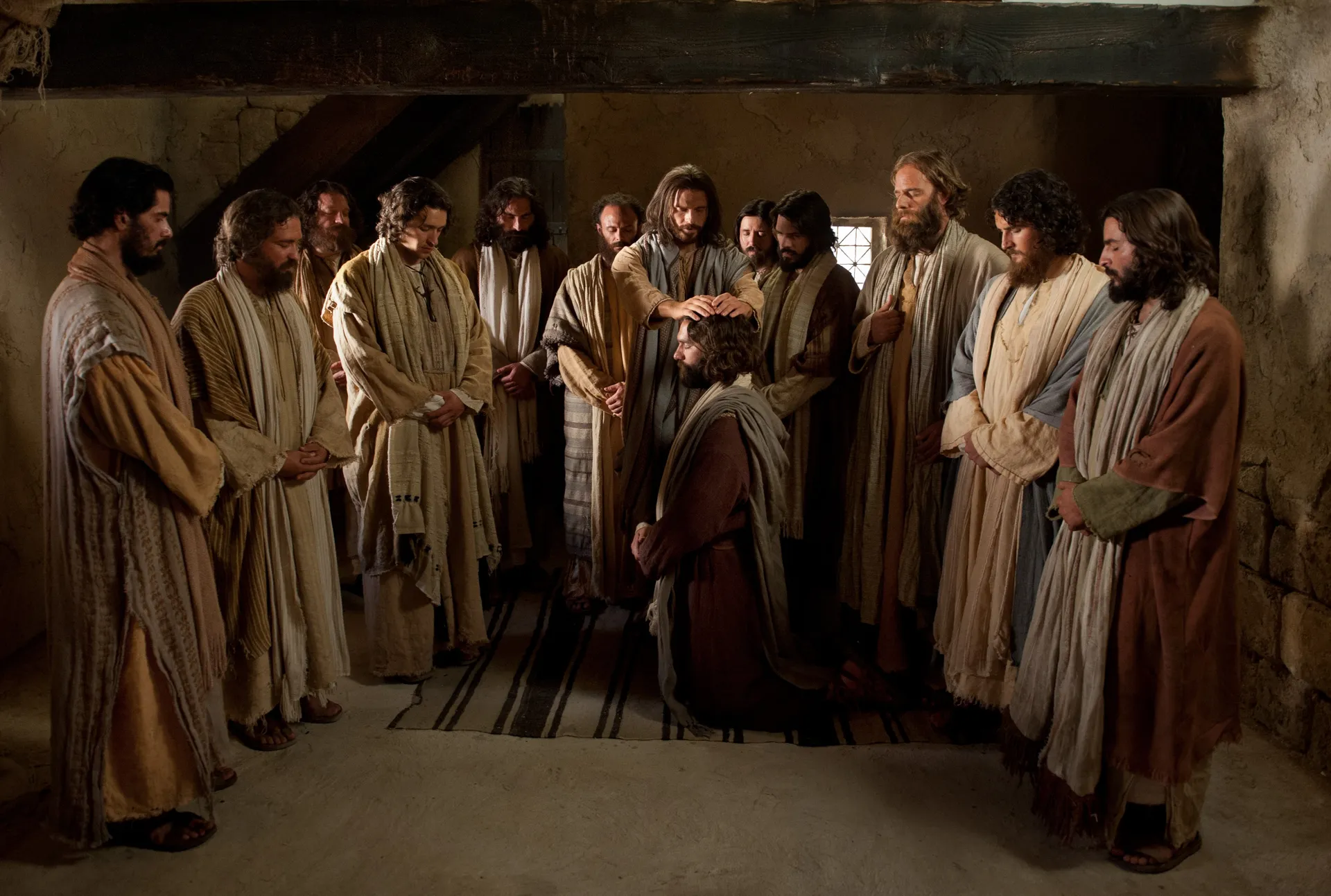Few roles in Christian history have been as influential – or as frequently misunderstood – as that of the apostle. When we hear the word “apostle” today, our minds might immediately jump to the twelve disciples who followed Jesus. Yet the New Testament presents a far richer and more nuanced understanding of apostolic ministry that continues to shape Christian mission and church leadership today.
Common misunderstandings about apostles abound in contemporary Christian circles. Some view apostles as a historical phenomenon limited to the first century, while others claim modern apostolic authority equivalent to the original twelve. The term “apostle” has become particularly confused in English-speaking churches, where we distinguish between “apostles” and “missionaries” despite these words sharing the same basic meaning of “one who is sent.”
Understanding the true nature and variety of apostolic roles in the New Testament is crucial for several reasons. First, it helps us appreciate the different ways God used sent ones to establish and spread the early church. Second, it provides important insights into how pioneer mission work and church planting should function today. Finally, it helps us distinguish between the unique role of the twelve apostles who witnessed Jesus’s ministry and the broader category of missionary apostles who continued their work.
This article will explore the complete role of apostolic ministry as revealed in the New Testament. From Greek origins of the term and its evolution in Christian usage, to how to differentiate between various types of apostles, to clarifying the distinction between apostles and disciples, and consider the contemporary implications of apostolic ministry.
By understanding these different dimensions, we’ll gain a clearer picture of how God used apostles to build his church and continues to use missionary apostles today.
Through this exploration, we’ll discover that while the twelve apostles held a unique and unrepeatable role in Christian history, the broader apostolic calling to pioneer mission work remains vital for reaching those who have yet to hear the gospel of Jesus Christ.
The Etymology and Historical Context of “Apostle”

The Original Greek Meaning of “Apostle” (Apostle Meaning in Greek)
To understand the biblical concept of apostleship, we must first examine its roots in ancient Greek culture and language. The term “apostle” comes from the Greek word “apostolos” (ἀπόστολος), derived from the verb “apostello” (ἀποστέλλω), meaning “to send out.” However, this seemingly simple definition barely scratches the surface of its rich historical meaning and subsequent Christian transformation.
Common Usage in Ancient Greek Society
In secular Greek usage, “apostello” was a common verb that carried specific connotations beyond mere sending.
It typically referred to sending someone with a particular task and the authority to accomplish it.
This wasn’t used for mundane activities like sending a letter to a friend; rather, it indicated commissioning someone for a specific mission with delegated authority from the sender.
Maritime and Military Applications
The noun form “apostolos” was actually quite rare in everyday Greek usage before the rise of Christianity. When it did appear, it often carried maritime or military connotations. Merchant fleets crossing the seas or armies dispatched on campaigns might be referred to as “apostoloi” – sent ones carrying out their sender’s mission across great distances. This connection to long-distance missions would later prove significant in its Christian application.
Transformation in Christian Usage
What’s particularly fascinating is how the early Christian church transformed this relatively uncommon term into a cornerstone of their vocabulary. The New Testament uses “apostolos” 79 times – more than can be found in all other first-century Greek literature combined. This dramatic increase in usage reflects the central importance the early church placed on being sent by God for His mission.
Jewish Religious Context
Before its Christian adoption, one of the few instances of “apostolos” in Jewish religious literature appears in the Greek translation of the Old Testament (Septuagint), specifically in 1 Kings 14:6, where it describes “one sent with a harsh message.” This usage bridges the secular Greek concept with its later Christian development, highlighting the role of being sent with both a message and authority.
Key Dimensions of Christian Usage
The Christian transformation of the term added several crucial dimensions to its meaning:
- Divine Commission: While the secular term focused on human authority, Christian usage emphasized divine sending and authority.
- Specific Task: The apostolic role carried the clear mandate of proclaiming the gospel and establishing churches.
- Delegated Authority: Apostles carried the authority of their sender – in this case, Christ himself – to accomplish their mission.
This evolution of meaning helps explain why the early church chose this particular term to describe its sent ones. The word perfectly captured both the mission-focused nature of their work and the divine authority under which they operated.
The dramatic increase in the term’s usage in Christian literature also reflects how central the concept of being “sent ones” was to the early church’s self-understanding. They saw themselves as a movement of people commissioned by God himself to carry out His mission in the world.
Biblical Definition and Development

Foundational Biblical Definition of Apostles
The biblical definition of an apostle extends far beyond simply “one who is sent.” While this basic meaning forms the foundation, the New Testament develops a rich and multifaceted understanding of apostleship that encompasses both authority and specific tasks.
In the Bible, apostles were not merely messengers, but representatives empowered with the authority of their sender and commissioned for specific purposes.
Authority and Task Components
The biblical concept of apostleship consistently links two crucial elements: authority and task. When Jesus sent out the twelve, He “gave them authority over evil spirits and to heal the sick” (as seen in the Gospels), connecting their sending with specific empowerment. This pattern continues throughout the New Testament, where apostolic authority is always tied to specific missions rather than existing as authority for its own sake.
Evolution Through New Testament Books
The meaning of “apostle” develops significantly across different New Testament books:
In the Synoptic Gospels (Matthew, Mark, and Luke), we see an interesting pattern. Matthew and Mark only use the term “apostle” once each, specifically when the disciples are sent out on mission. This suggests that during Jesus’s ministry, they were primarily known as disciples (learners), becoming apostles only when actively sent out on mission.
Luke’s Gospel uses the term more frequently, but the book of Acts marks a significant shift. Here, the term becomes a standard designation for the twelve, who are no longer called disciples. This reflects their transition from learners to sent ones after receiving the Great Commission.
Paul’s letters introduce the broadest usage of the term, applying it not only to the twelve but also to others engaged in missionary work. He recognizes various categories of apostles, including:
- The twelve (unique eyewitnesses)
- Other eyewitnesses like himself and James
- Missionary apostles like Barnabas
- Church-sent apostles on specific missions
Comparison with Modern Term “Missionary”
One of the most significant challenges in understanding biblical apostleship comes from our modern distinction between “apostles” and “missionaries.” This separation, while common in English-speaking churches, creates artificial divisions not present in the New Testament. Consider:
1. Linguistic Equivalence:
- “Apostle” comes from Greek (apostolos) meaning “sent one”
- “Missionary” comes from Latin (missio) meaning “sent one”
2. Functional Similarity:
- Biblical apostles were pioneers establishing churches in new areas
- Modern missionaries often serve the same pioneering function
3. Contemporary Confusion:
- Today, “apostle” often suggests authority positions
- “Missionary” emphasizes the task of going
- The New Testament combines both concepts
This division has led to some confusion in modern church contexts. While we reserve the term “apostle” for the biblical figures or (in some traditions) for high church authorities, we use “missionary” for those doing essentially the same pioneer work as many New Testament apostles.
Understanding this helps us bridge the gap between biblical and contemporary usage. While maintaining the unique role of the twelve apostles and early eyewitnesses, we can recognize that today’s missionaries often fulfill the same function as the broader category of New Testament missionary apostles – those sent to establish the church in new areas with the authority and task given by Christ through His church.
This biblical understanding of apostleship challenges us to reconsider how we view both modern missionary work and apostolic ministry, recognizing that these concepts were inseparably linked in the New Testament church.
Four Types of Apostles in the New Testament

The Twelve Apostles in the Bible
The twelve apostles hold a unique and unrepeatable position in Christian history. Their role was defined by extraordinarily specific qualifications – they needed to be eyewitnesses of Jesus’s entire ministry, from His baptism through His resurrection. As recorded in Acts 1:21-22, this comprehensive witness was essential to their role in establishing what Jesus truly did and taught.
These twelve men were personally appointed by Jesus and served as the foundation of the universal church. Their significance is highlighted by the dramatic scene in Acts 1 where the early church sought to replace Judas. The urgency to maintain exactly twelve apostles speaks to their symbolic connection with the twelve tribes of Israel and their foundational role in the new covenant community.
Notably, when other apostles were later martyred or died, no attempts were made to replace them – only Judas needed a replacement to restore the twelve.
The authority of the twelve was unique and universal. In Revelation 21, we see their names recorded as the foundation stones of the New Jerusalem, symbolizing their permanent and irreplaceable role in establishing the church. They were not merely leaders or teachers, but the authoritative witnesses to the life, death, and resurrection of Jesus Christ.
Other Apostolic Eyewitnesses
Beyond the twelve, the New Testament recognizes other apostles who, while not part of the original group, encountered the risen Christ and became pivotal church leaders. Paul, following his dramatic encounter with the risen Jesus on the Damascus Road, became the primary apostle to the Gentiles. Though he hadn’t followed Jesus during His earthly ministry, his apostleship was validated by his resurrection encounter and direct commission from Christ.
Similarly, James, the Lord’s brother, who wasn’t even a believer during Jesus’s ministry, became an apostle and leader of the Jerusalem church after seeing the resurrected Christ. These apostles couldn’t qualify for membership among the twelve, but their eyewitness testimony of the resurrection and their leadership roles gave them special authority in the early church.
Missionary Apostles in Early Christianity
A third category emerges in the New Testament of those engaged in pioneer mission work. Barnabas, who worked alongside Paul, became recognized as an apostle through his missionary work. Silas and Timothy, key members of Paul’s team, were also identified as apostles in Paul’s letters. Perhaps most surprisingly, Andronicus and Junia, a missionary couple mentioned in Romans 16, were described as “outstanding among the apostles.”
These missionary apostles focused on establishing churches in unreached areas, carrying out the Great Commission in new territories.
Their apostleship was recognized not by eyewitness status but by their pioneering work in expanding the church’s reach. They demonstrate that apostleship extended beyond the original witnesses to include those actively engaged in frontier mission work.
Church-Sent Apostolic Representatives
The final category encompasses those sent by churches for specific missions. Unlike the other categories, these apostles served more temporary roles with clearly defined tasks. Epaphroditus, mentioned in Philippians, exemplifies this type – sent by his church to support Paul’s ministry. The Macedonian envoys mentioned in 2 Corinthians 8 similarly carried out specific missions on behalf of their churches.
These church-sent apostles held a different kind of authority than those sent directly by Christ. Their role was more limited in scope and duration, yet they still carried the authority of those who sent them – their local churches.
They show how the early church adapted the concept of apostleship to meet specific ministry needs while maintaining appropriate distinctions in authority and function.
This rich tapestry of apostolic ministry in the New Testament helps us understand both the unique role of the original apostles and the ongoing nature of apostolic work in pioneer missions. It provides crucial context for understanding how certain aspects of apostolic ministry continue today, while others were unique to the church’s founding generation.
Apostles vs. Disciples: Understanding the Distinction

What Is the Difference Between an Apostle and a Disciple?
The New Testament draws an important distinction between disciples and apostles, though these roles can overlap. A disciple (mathētēs in Greek) was fundamentally a learner or follower – someone who attached themselves to a teacher to learn their ways and teachings. An apostle, by contrast, was one sent out with authority to represent the sender and accomplish specific tasks.
The Journey from Discipleship to Apostleship
The Gospels provide a clear picture of this progression through Jesus’s inner circle. These men began as disciples, learning from Jesus and following His teachings. This is particularly evident in Matthew and Mark, where the term “apostle” appears only once – specifically when Jesus sends them out on mission. Prior to this, they are consistently called disciples, highlighting their primary role as learners.
This transition becomes even more pronounced after Jesus’s resurrection. In the book of Acts, these same men are no longer referred to as disciples but are consistently called apostles. Their role had fundamentally changed – they were no longer primarily learners but had become those sent out with Christ’s authority to establish His church.
Distinct Roles and Responsibilities
The distinction between these roles goes beyond mere terminology. Disciples focused on learning, growing, and following. Their primary responsibility was to understand and internalize Jesus’s teachings and way of life.
The thousands who followed Jesus during His ministry were disciples, but not all became apostles.
Apostles carried additional responsibilities. Beyond learning, they were charged with representing Jesus to others, bearing His authority, and establishing His church in new places. While all apostles were first disciples, not all disciples became apostles. This distinction helps explain why the early church had many disciples but relatively few recognized apostles.
Examples from the New Testament
This distinction becomes clear when examining specific Gospel accounts. When Jesus feeds the five thousand, we see a large crowd of disciples following Him to learn. However, when He needs to send someone with authority to prepare for the Passover or to proclaim His message in nearby towns, He specifically sends the apostles.
The commissioning accounts in the Gospels highlight this difference. While Jesus taught all His disciples, He specifically commissioned the apostles with authority to heal, cast out demons, and represent Him. This commissioning marked their transition from being merely learners to becoming authorized representatives.
Today, this distinction remains relevant for understanding Christian ministry roles. All Christians are called to be disciples – continual learners and followers of Jesus. Some are additionally called to apostolic work, particularly in pioneer missionary contexts where they establish the church in new areas. Understanding this distinction helps clarify both the universal call to discipleship and the specific calling some receive to apostolic ministry.
Functions and Tasks of Apostles
Core Functions of Apostolic Ministry
The New Testament reveals a clear pattern of how apostles carried out their ministry, combining proclamation with practical demonstration of the Christian life.
Their work wasn’t merely theoretical or theological – it involved specific, hands-on tasks that established and strengthened the early church.
Proclamation and Evangelism
The primary task of apostles was proclaiming Jesus Christ in places where He wasn’t yet known. This proclamation wasn’t simply delivering information – it involved calling people to conversion through a clear presentation of the gospel. Paul exemplifies this in his ministry, consistently focusing on areas where Christ hadn’t been preached. His desire to reach Spain, as mentioned in Romans, stemmed from his passion to proclaim Christ in completely unreached territories.
Cultural Adaptation and Contextualizing
One of the most remarkable aspects of apostolic ministry was their commitment to adapting themselves and their message to reach different audiences effectively.
Rather than requiring others to adapt to their culture, apostles took the initiative to bridge cultural gaps. Paul’s famous statement about becoming “all things to all people” wasn’t just rhetoric – it described the apostolic approach to ministry.
This adaptation included language learning, cultural sensitivity, and lifestyle adjustments. They didn’t compromise the gospel message but presented it in ways that made sense to their audiences. This principle remained consistent whether they were reaching Jewish communities, Greek philosophers, or Roman citizens.
Modeling Christian Life
Apostles didn’t just teach abstract principles – they demonstrated what it meant to follow Jesus through their lives.
Paul frequently encouraged his converts to imitate his example, saying “follow me as I follow Christ.”
This modeling was especially crucial in regions where there were no existing Christians to demonstrate what Christian life looked like in practice.
This aspect of apostolic ministry required transparency and vulnerability. They lived among the people they served, allowing their daily lives to become visible examples of Christian faith in action. This included demonstrating Christian responses to persecution, handling conflicts, and showing Christian love in practical ways.
Foundation Laying
A unique aspect of apostolic ministry was laying foundations for new churches. Paul describes himself as a “wise master builder” laying foundations in 1 Corinthians 3. This foundation-laying went beyond initial evangelism to include:
- Establishing basic Christian doctrine
- Developing local leadership
- Creating sustainable church structures
- Building relationships between new churches and existing ones
The goal wasn’t to maintain permanent control but to establish churches that could function independently under local leadership. This often meant staying in one location long enough to develop leaders but then moving on to new areas.
Pioneer Focus
Perhaps the most distinctive characteristic of apostolic ministry was its pioneer focus. Apostles consistently prioritized reaching areas where Christ wasn’t known rather than building on existing foundations.
This pioneer spirit reflected their understanding of their specific calling – they weren’t meant to be permanent pastors but pioneers establishing new outposts of the church.
This pioneering work often involved significant personal sacrifice. Paul’s list of hardships in 2 Corinthians 11 illustrates the physical and emotional costs of apostolic ministry. Yet this willingness to endure hardship was seen as part of their calling to reach the unreached.
These functions continue to provide a model for mission work today. While the unique role of the twelve apostles can’t be repeated, their pattern of ministry – particularly in pioneer mission work – remains relevant for those called to establish the church in unreached areas. Their example challenges us to consider how these principles might apply in contemporary contexts while maintaining the essential focus on reaching those who haven’t yet heard the gospel.
False Apostles and Modern Implications
Paul’s Warnings About False Apostles
The New Testament’s concern about false apostles remains strikingly relevant today. Paul devoted considerable attention to this issue, particularly in his letters to the Corinthians. He warned about “pseudo-apostles” who claimed apostolic authority but whose ministry contradicted the true nature of apostolic work. These warnings weren’t mere organizational disputes but concerned the fundamental integrity of the gospel message.
Identifying False Apostolic Claims
Paul outlined several key characteristics of false apostles that create a clear contrast with genuine apostolic ministry.
Unlike true apostles who demonstrated humility and suffered for Christ, false apostles were characterized by their boasting, demands for financial support, and desire for control over established churches. Most tellingly, they focused on exercising authority over existing congregations rather than engaging in pioneer missionary work.
The contrast was stark: while true apostles like Paul worked with their own hands when necessary and focused on unreached areas, false apostles sought power, status, and financial gain from existing churches. Paul went so far as to attribute their work to Satan, seeing it as a fundamental distortion of Christian ministry.
Contemporary Applications
Today’s church faces similar challenges in distinguishing genuine apostolic ministry from false claims. Many who claim apostolic authority today focus more on controlling existing churches than on pioneer missionary work. This mirrors the pattern Paul warned against – seeking authority without embracing the true apostolic task of reaching the unreached.
The key distinction remains the same: genuine apostolic ministry focuses on pioneer work, establishing Christ’s church where it doesn’t exist, rather than exercising authority over established congregations. This understanding helps churches evaluate claims to apostolic ministry and maintain appropriate boundaries.
The Continuing Role of Missionary Apostles
While we must be wary of false apostolic claims, the New Testament model of missionary apostles remains valid and vital.
Today’s pioneer missionaries, though they may not use the title “apostle,” often function in ways similar to New Testament missionary apostles – crossing cultural boundaries to establish the church in unreached areas.
These modern missionary apostles typically display the same characteristics Paul valued: humility, willingness to suffer, focus on unreached peoples, and commitment to establishing indigenous churches rather than maintaining permanent control. Their work, while different from the unique role of the twelve apostles, continues the biblical pattern of apostolic mission.
Understanding these distinctions helps the church both guard against false claims and support genuine missionary work, maintaining the priority of reaching those who have yet to hear the gospel.
FAQ Section: Common Questions About Apostles
Was Paul Supposed to Be the 12th Apostle?
This common question reflects a misunderstanding of both Paul’s role and the nature of the twelve apostles. Paul could not have been the 12th apostle for several key reasons. First, when the early church sought to replace Judas in Acts 1, they established clear criteria: the replacement had to have been with Jesus from His baptism through His resurrection. Paul, who encountered Jesus only after His resurrection, didn’t meet these requirements.
Moreover, Matthias had already been chosen as the 12th apostle before Paul’s conversion. Paul himself never claimed to be one of the twelve, instead describing himself as “one abnormally born” and “the least of the apostles.” His unique apostolic calling was distinct from, though not inferior to, that of the twelve.
What Do the 12 Apostles Symbolize?
The symbolism of the twelve apostles operates on multiple levels in the New Testament. Most directly, they represent the twelve tribes of Israel, signifying the continuity between God’s old covenant people and the new covenant church. This symbolism appears explicitly in Jesus’s promise that the twelve would judge the twelve tribes of Israel and is reinforced in Revelation’s image of their names on the foundation stones of the New Jerusalem.
The number twelve also symbolizes God’s people as a whole, suggesting completeness and divine organization. Just as the twelve tribes represented the totality of Israel, the twelve apostles represent the foundation of the complete church of Jesus Christ.
Can There Be Apostles Today?
This question requires a nuanced answer based on the New Testament’s various categories of apostles. The role of the twelve apostles was unique and unrepeatable – no one today can claim their position as eyewitnesses of Jesus’s ministry and authoritative founders of the universal church.
However, the New Testament pattern of missionary apostles – those sent to establish the church in new areas – continues today through pioneer missionary work. While many modern missionaries don’t use the title “apostle,” their function often parallels that of New Testament missionary apostles like Barnabas.
How Does Apostolic Ministry Relate to Modern Missions?
The connection between ancient apostolic ministry and modern missions is profound. Today’s missionaries often fulfill similar functions to New Testament missionary apostles:
- Breaking new ground in unreached areas
- Establishing churches where none existed
- Training local leadership
- Adapting the gospel presentation to new cultures
- Building foundations for indigenous churches
Understanding this connection helps modern missionaries see their work as a continuation of the New Testament pattern, while maintaining appropriate distinctions from the unique role of the twelve.
What Authority Do Modern “Apostolic” Leaders Have?
Given the various claims to apostolic authority today, this question deserves careful consideration.
The New Testament suggests that apostolic authority was tied to specific tasks rather than existing as authority for its own sake.
Modern leaders claiming apostolic authority should be evaluated based on whether their ministry aligns with New Testament patterns – particularly the focus on pioneer mission work rather than control over existing churches.
This FAQ section addresses common questions while maintaining important distinctions between the unique role of the twelve apostles and the continuing pattern of missionary apostolic work. Understanding these nuances helps us appreciate both the historical significance of the original apostles and the ongoing relevance of apostolic ministry in mission work today.
Conclusion
The New Testament presents a rich and nuanced understanding of apostolic ministry that extends far beyond the commonly held view of just “the twelve apostles.” Through our exploration, we’ve seen how the term evolved from its Greek origins to become a cornerstone of early Christian mission and identity.
We’ve distinguished between four types of apostles – the unique twelve, other eyewitnesses like Paul and James, missionary apostles, and church-sent representatives – each playing vital roles in the expansion of early Christianity.
This understanding has direct relevance for the church today. While we must maintain the unique and unrepeatable role of the twelve apostles, we can also recognize the continuing validity of missionary apostolic work in frontier settings. Modern missionaries, though they may not use the title “apostle,” often function in ways remarkably similar to New Testament missionary apostles – crossing cultural boundaries to establish Christ’s church where it doesn’t exist.
The apostolic pattern challenges today’s church to maintain its focus on reaching the unreached. Just as Paul yearned to preach Christ where He wasn’t known, we too must prioritize taking the gospel to those who have never heard it. This mission, though changed in its contexts and methods, remains as urgent and vital as it was in the first century.
Want to connect with us and receive training or collaborate? Fill out the form:
